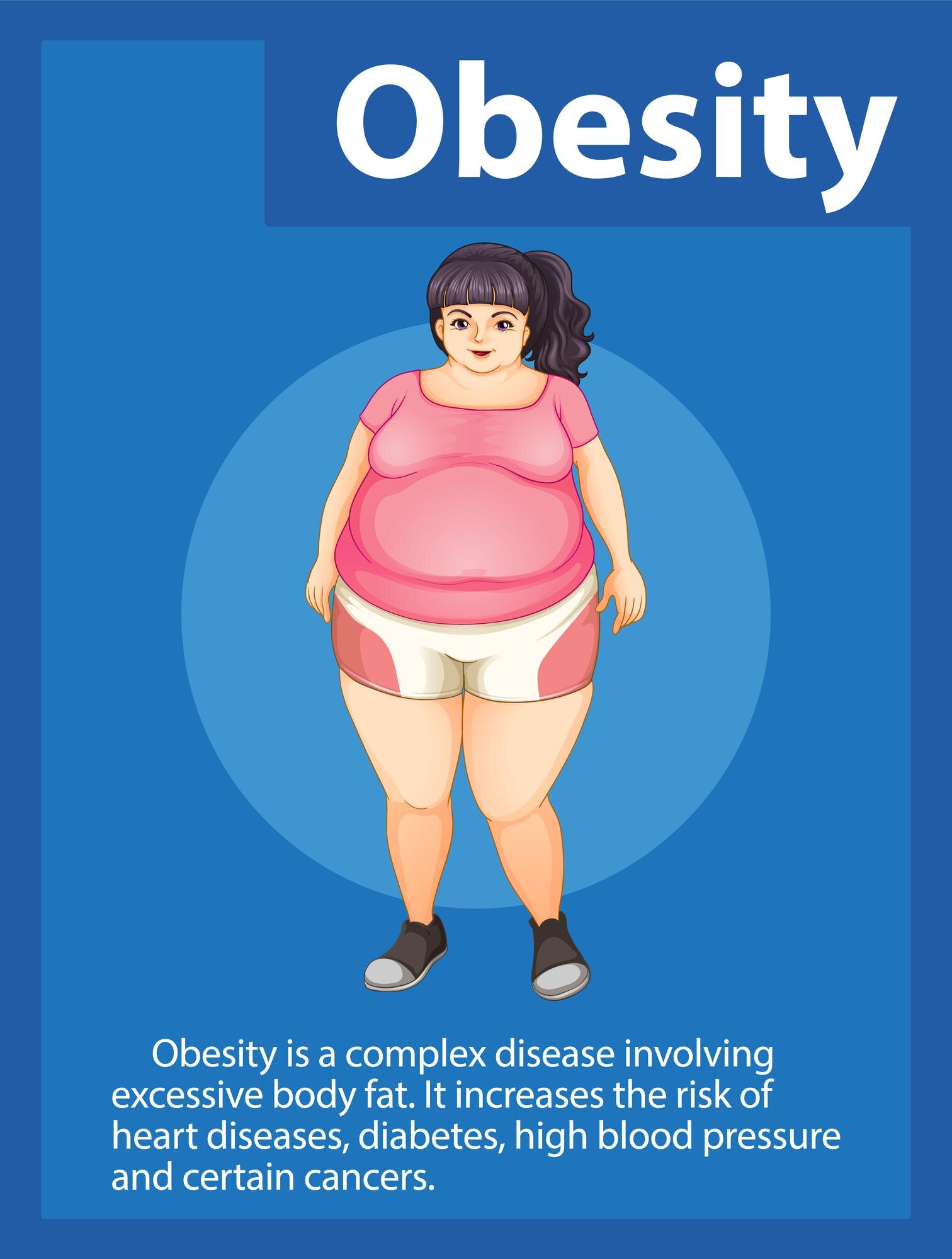Obesity: Understanding Causes, Symptoms, and Effective Treatments
One chronic medical condition is obesity, which can be defined as abnormal fat accumulation in the body to such an extent that it affects health. Today, this is a worldwide epidemic affecting millions of adults and children. It is essential to know those causes, symptoms, and treatments of obesity to be able to fight its effects on personal health and society as a whole.
What is Obesity?
Obesity can be measured more with respect to the Body Mass Index (BMI), which says that weight is within reasonable ranges in height. Therefore, a subject with a BMI greater than 30 can be termed obese. However, BMI should be checked because it does not really consider how much muscle someone has—because fat is something different and needs additional health measurements. Mostly, it is not just about looking good; it has a lot of health-related problems linked with increased risk for diseases such as diabetes, heart failure, some forms of cancer, and obesity.
Causes in Obesity
Obesity arises from a combination of factors, including:
-
Dietary Patterns:
People consume many calorie-dense food items that are often sugar- and fat-rich, usually leading to an increase in weight. This includes some of the processed or fast foods, since these two categories have become a well-known part of the increase in weight.
-
Physical Inactivity:
We view exercise, but one sedentary lifestyle means not exercising and enabling your body to burn calories because it simply stays fat.
-
Genetic Predisposition:
Since heredity or genetic makeup could have an influence on an individual’s metabolism and storage of fats, certain individuals could inherit comparatively easy gains in weight.
-
Medical Conditions:
Like hypothyroidism or polycystic ovary syndrome (PCOS), which eventually slows metabolism and could lead to weight gain.
-
Psychological Factors:
Stress, anxiety, and depression can lead to overeating or emotional eating.
-
Medications:
Some drugs (like certain steroids and antidepressants) can also cause weight gain as a side effect.
Obesity Sign and Symptoms
Obesity can be seen in physical appearance; other symptoms include:
-
Abdominal fat deposits.
-
Difficulties in breathing even with the slightest movement.
-
Heavy sweating.
-
Discomfort in the joints and in the back.
-
Reduced energy and poor quality sleep.
-
Psychological factors of self-worth and depression.
Childhood Obesity
Childhood obesity is a serious condition that puts children at risk for bearing chronic diseases at such an early age. The principal competition among the factors contributing includes:
- Poor Dietary Habits: Intake of sugary snacks, fast foods, and sugary beverages.
- Lack of Physical Activity: Many children have not had enough play and sports time with the increase of screen time.
- Family Influence: Parents set the examples of their eating and exercising habits for the children.
There are several measures in place to curb childhood obesity: to encourage healthy eating and inspire active play while providing an enabling environment in school and at home.
What Causes Rapid Weight Gain in Females?
Rapid weight gain in females can occur due to:
- Hormonal Changes: menopause, pregnancy, and other hormonal imbalances such as those seen in PCOS have a major contribution.
- Stress and emotional eating: Stress in women comes with comfort eating that is heavy on calories.
- Thyroid Disorders: Hypothyroidism is another significant contributing factor in which weight gain occurs due to a slow metabolism resulting from underactivity of the thyroid gland.
- Side Effects of Medications: Hormonal contraceptives, antidepressants, and some other medicines may cause considerable weight changes.
It is very important to find the root cause for proper management.
Obesity Treatment
Obesity treatment, from lifestyle changes to individualized approaches:
-
Changes in lifestyle:
Balanced meals rich in whole grains, minus sugars, lean proteins, and vegetables while minimizing sweets and unhealthy fats are essential.
Regular physical exercise, meaning walking, yoga, or strength training, improves the metabolism while losing weight. -
Behavioral Therapy:
Cognitive-behavioral therapy (CBT) helps in determining triggers for excessive eating and the establishment of healthy habits.
-
Medical Interventions:
Weight-loss medications are initiated among individuals whose attempts at losing weight through lifestyle changes have not borne fruit.
Treatment of underlying conditions such as the thyroid problem or PCOS is also essential. -
Surgical Recovery:
Bariatric surgery, such as gastric bypass or sleeve gastrectomy, may be offered for severe cases of obesity if there is no other solution.
Preventing Obesity
Prevention is the most effective way to combat obesity.
- Schedule a healthy, balanced, and nutritious diet.
- Plan physical activities for 30 minutes every day.
- Relieve stress through mindfulness or relaxation methods.
- Regular general check-ups help in preventing early detections as well as reversals with newfound weight.
Consequences of Obesity on Society
Consequences of obesity are not limited to one’s health alone; it drains the coffers of healthcare systems and society in general. Initiatives in public health to promote healthy eating and a physically active lifestyle are imperative in stemming this epidemic. Likewise, very important is the need to mitigate stigma and maintain supportive systems for individuals with obesity.
Conclusion
It’s a syndrome that is complex and calls for understanding, so it must be managed with compassion and holistically. There are plans tailor-made here at Dr. Geetanjali Physioworks to treat the causes of obesity, thus leading patients toward a healthy life.
Make the first step to a healthier future by making appointments with professionals who will take you through sustainable weight loss and overall well being.
ALSO READ THIS BLOG – Osteoporosis

